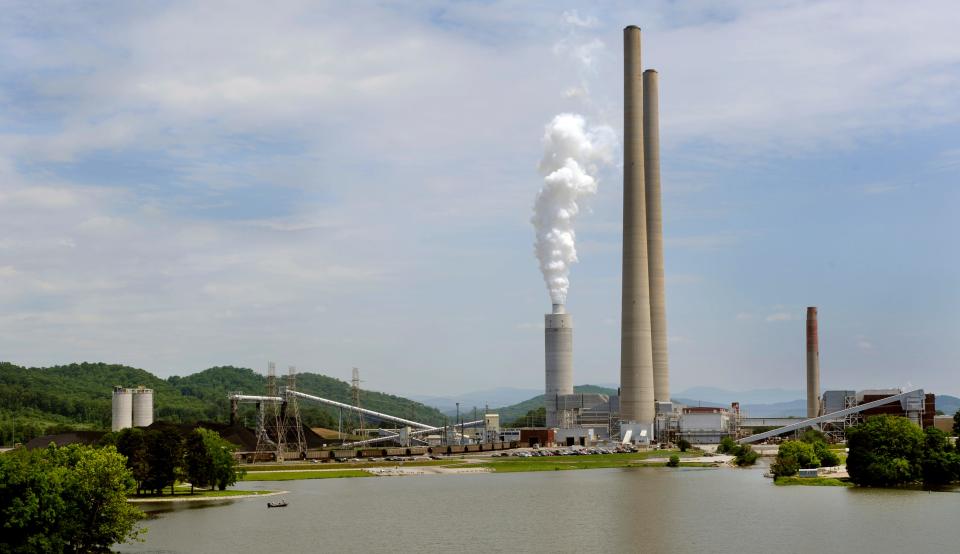TVA is increasing electricity rates by 4.5%. What that means for Knoxville residents
The Tennessee Valley Authority will increase its base electricity rates by 4.5% beginning Oct. 1, the first increase in four years, and Knoxville residents can expect to see an increase in their electric bills this fall.
The agency's board of directors voted unanimously on the increase and approved the budget for the 2024 fiscal year at a meeting in Chattanooga on Aug. 24.
The board approved $15 billion in investments over the next three years to expand electricity generation and upgrade its existing system to meet rapid growth in electrical demand. TVA's president and CEO Jeff Lyash said the agency needs to quickly expand its capabilities, as the population of the seven-state region it serves grows at around three times the national average.
“It took us 90 years to build our current power system, which positively changed the lives of millions,” Lyash said. “In the next 30 years, we will have to double or triple the current systems at a speed unlike any other time in TVA history to ensure we can continue to provide affordable, reliable, resilient and sustainable energy to fuel the region’s economic growth.”
Between 2021 and 2022, Knox County grew by 7,762 residents, a 1.6% increase, according to the Boyd Center for Business and Economic Research at the University of Tennessee at Knoxville. That figure includes population growth for the city of Knoxville, which added 2,291 residents for a growth rate of 1.2%.
The Boyd Center projects Knox County will reach 557,495 residents by 2040, an increase of 12.7% from the 2022 population estimate of 494,574 by the U.S. Census. The county is in the midst of its Advance Knox initiative to create a development plan to deal with the expected influx of new residents.
Here's how TVA is working to meet demand and how its rate increase will affect Knoxville residents.

KUB expects a minor rate increase
TVA expects a typical monthly residential energy bill in the region to increase by $3.50.
The Knoxville Utilities Board, which gets its electricity from TVA, said it learned of the rate increase when the board announced its decision, and echoed that residents might see on average a $3.50 increase to their electric bill beginning this fall.
"The 4.5% is passed directly from TVA to KUB customers for power purchased from TVA," KUB said in a statement to Knox News. "KUB does not receive a percentage of the 4.5%."
KUB purchases power from TVA and supplies it to around 213,000 customers across most of Knox County and parts of Anderson, Union, Grainger, Jefferson, Sevier and Blount counties.
The Lenoir City Utilities Board purchases from TVA and supplies electric service to around 69,000 customers in Lenoir City and Farragut, as well as some unincorporated parts of west Knox County and portions of Knoxville.
A spokesperson from LCUB told Knox News the board was still working to calculate how TVA's rate increase would affect its customers, but expected they could see an increase greater than $3.50, especially for those in older or larger homes.
TVA pinched by inflation, supply chain issues
The economy has grown at a higher rate in the years since the COVID-19 pandemic than in the previous decade, during which TVA said it saw almost no growth in its electric load. Now, the rate increase is needed to pay for future projects, TVA says.
“TVA is not immune to cost increase, inflation and supply chain challenges,” Lyash said. “We worked to minimize any impact on families while balancing our region’s growing energy needs, and these funds will allow us to invest in new capacity as well as invest in the reliability of our current assets.”
TVA said its prices remain lower than 70% of the top 100 utilities providers in the country, even with the rate increase. It is the nation's largest public power supplier, and its revenue comes from sales of electricity to its 10 million customers, not taxpayer funding.

Growth includes natural gas, clean energy
TVA has invested $25 billion in the past 10 years in its existing system and new generation. Its shift away from coal-fired power plants toward natural gas plants, or from one fossil fuel to another fossil fuel, has caused pushback from environmentalists who want a faster transition to clean energy.
As it plans for $15 billion in investment over the next three years, TVA's goals include:
Net-zero carbon emissions by 2050
10,000 megawatts of new solar energy by 2035
3,800 megawatts of new generation by 2028
$100 million in energy efficiency and demand response programs to offset 30% of new load growth over 10 years
Phasing out coal-powered plants by 2035
1,250 megawatts of new generation at the gas-powered Johnsonville and Paradise plants in 2023 and 2024
“Our region’s future is bright,” Lyash said. “The challenge is finding the right balance in changing conditions that are fiscally responsible while ensuring that we can provide the power you need over the next 30 years.”
Daniel Dassow is a reporting intern focusing on trending and business news. Phone 423-637-0878. Email daniel.dassow@knoxnews.com.
Support strong local journalism by subscribing at knoxnews.com/subscribe
This article originally appeared on Knoxville News Sentinel: What TVA electricity rate hikes mean for Knoxville residents

